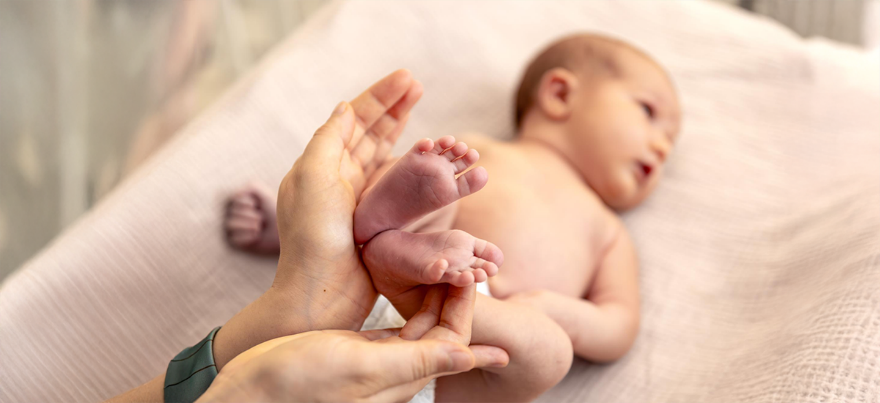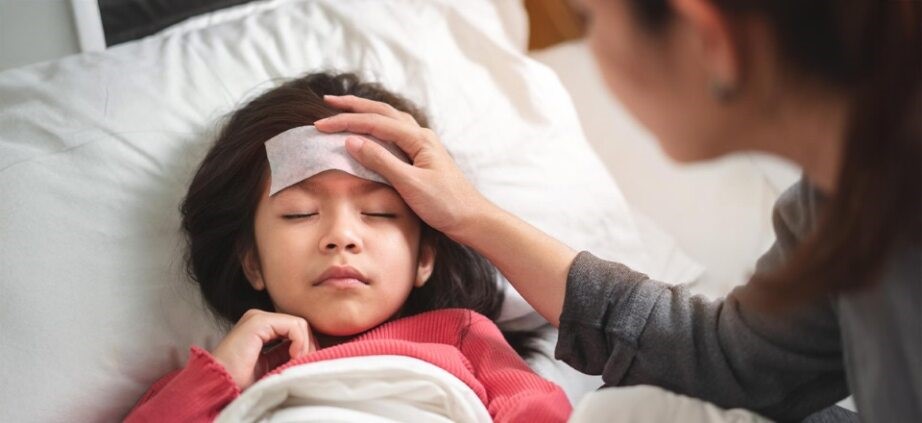Categories
Cold Home Remedies for Newborn Babies: What Parents Should Know
Jul 28, 2025
Caring for a newborn is a journey filled with joy, learning, and occasional worries, especially when your little one catches a cold. It’s natural to feel concerned when your baby sneezes, has a blocked nose, or appears uncomfortable. While newborns have delicate immune systems and always require close monitoring, there are gentle, home-based remedies that can help ease mild cold symptoms.
Before trying any remedy at home, it's crucial to consult a pediatrician. This step, especially if the symptoms worsen, can provide you with the reassurance and information you need. A quick visit or even a call to a pediatric hospital can make all the difference in ruling out more serious conditions.
Alternatively, take your baby into the bathroom while running a hot shower. Sit there for 10–15 minutes while the room fills with steam. This natural steam inhalation can work wonders without needing any medicated products.
Seeing your newborn uncomfortable with a cold can worry, but mild symptoms often improve with care, patience, and simple cold home remedies.
The focus should be on comfort, hydration, and monitoring. Always listen to your instincts as a parent; if something doesn’t feel right, it’s better to avoid caution and seek help from a nearby pediatric hospital.
Your baby’s health is too precious to leave to guesswork. Prompt and informed care makes all the difference, whether it’s a common cold or something more.
Disclaimer:
The information provided in this blog is for general informational purposes only and should not be considered a substitute for professional medical advice, diagnosis, or treatment. Always seek the guidance of a qualified healthcare provider with any questions you may have regarding a medical condition, symptoms, or treatment options. Never disregard professional medical advice or delay seeking it because of something you have read here.
Before trying any remedy at home, it's crucial to consult a pediatrician. This step, especially if the symptoms worsen, can provide you with the reassurance and information you need. A quick visit or even a call to a pediatric hospital can make all the difference in ruling out more serious conditions.
Why Do Newborns Catch Colds Easily?
Newborn babies are still developing their immune defenses. They may catch a cold due to sudden changes in weather, exposure to infected adults or older siblings, or just because their bodies are adjusting to the environment outside the womb. Common signs of a cold in newborns include:- Mild fever
- Runny or stuffy nose
- Sneezing
- Irritability or fussiness
- Difficulty feeding due to nasal congestion
6 home remedies for cold
Let us now look at some safe and natural cold home remedies that can relieve your baby.Saline Nasal Drops
Saline drops are one of the safest and most effective remedies for relieving a stuffy nose. You can buy them over-the-counter or make a mild saltwater solution home using sterilized water and a pinch of salt.- Use a clean dropper to place 1–2 drops in each nostril.
- Wait a minute, then gently suction the mucus using a bulb syringe.
Use a Humidifier or Steam
Dry indoor air, especially during winter, can worsen congestion. Using a cool-mist humidifier in your baby’s room can add moisture to the air, easing breathing and reducing nasal blockage.Alternatively, take your baby into the bathroom while running a hot shower. Sit there for 10–15 minutes while the room fills with steam. This natural steam inhalation can work wonders without needing any medicated products.
Elevate the Baby’s Head Slightly During Sleep
Newborns sleep flat on their backs for safety, but you can slightly elevate the head area of their mattress to help mucus drain more easily. Place a rolled towel under the mattress, not on top of it, to raise the angle gently. Never place pillows or loose objects in the crib, as they increase the risk of suffocation.Breastfeeding
Antibodies and immune-boosting elements. If your baby is breastfed, continuing to nurse frequently can help them fight off the infection more quickly. If your baby has a reduced appetite, offer shorter but more frequent feeds.Warm Mustard Oil Massage
A gentle massage with warm mustard oil infused with garlic or ajwain (carom seeds) is a traditional remedy in many Indian households. It helps improve circulation and gives a comforting warmth to the baby’s body.- Warm the oil slightly, test it on your wrist first to ensure it’s not too hot.
- Massage gently on the chest, back, and soles of the feet.
- After 20–30 minutes, give your baby a warm sponge bath and dress them in comfortable clothes.
Keep the Baby Hydrated and Calm
Offer regular feeds, keep the baby warm but not overheated, and reduce exposure to loud noises or bright lights. A calm, stress-free environment helps the baby recover faster.When to Seek Medical Help?
While cold home remedies are effective in managing mild symptoms, you must act promptly if:- The baby is younger than 3 months and has a fever over 100.4°F (38°C)
- There is difficulty breathing, grunting, or wheezing
- The baby is feeding poorly or refusing feeds altogether
- There is persistent crying or signs of dehydration (dry lips, fewer wet diapers)
- You notice bluish skin around your lips or fingers
Seeing your newborn uncomfortable with a cold can worry, but mild symptoms often improve with care, patience, and simple cold home remedies.
The focus should be on comfort, hydration, and monitoring. Always listen to your instincts as a parent; if something doesn’t feel right, it’s better to avoid caution and seek help from a nearby pediatric hospital.
Your baby’s health is too precious to leave to guesswork. Prompt and informed care makes all the difference, whether it’s a common cold or something more.
Disclaimer:
The information provided in this blog is for general informational purposes only and should not be considered a substitute for professional medical advice, diagnosis, or treatment. Always seek the guidance of a qualified healthcare provider with any questions you may have regarding a medical condition, symptoms, or treatment options. Never disregard professional medical advice or delay seeking it because of something you have read here.











